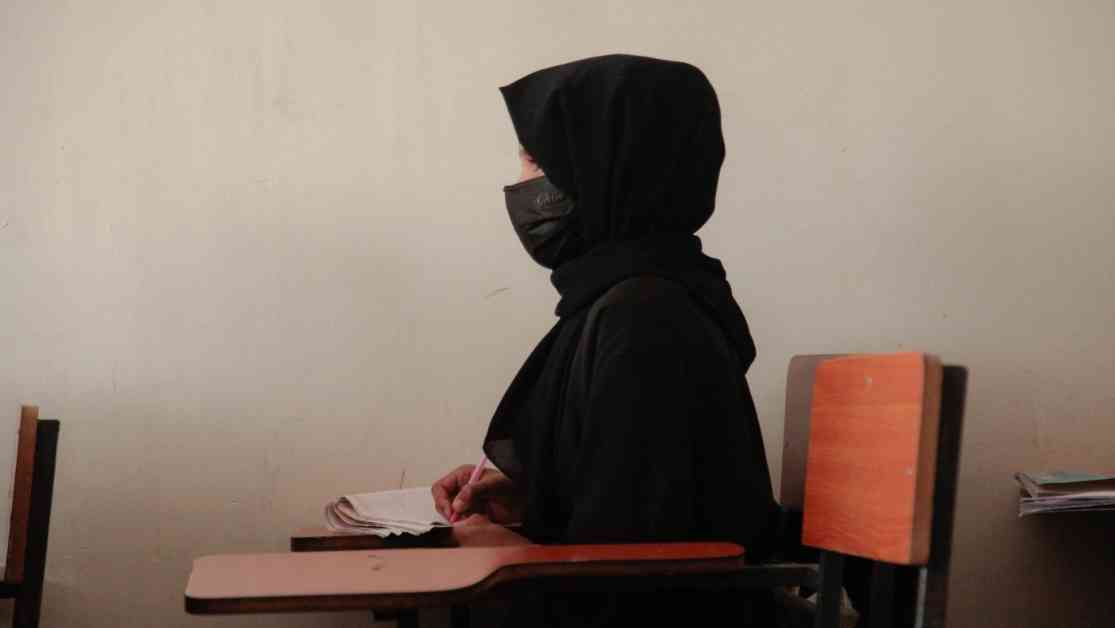Afghan Men’s Support for Women’s Rights: Breaking the Silence
In the face of Taliban-imposed restrictions on women’s rights in Afghanistan, there is a growing movement of Afghan men who are stepping up to support the women in their lives. Despite the traditional view of Afghanistan as a deeply conservative and male-dominated society, recent surveys have revealed that a significant percentage of Afghan men, including those who may support the Taliban, are in favor of basic human rights for women.
Zahir, a 45-year-old public service professional, is just one example of an Afghan man who has expressed his solidarity with Afghan women. After the Taliban seized control of Kabul in August 2021, Zahir gathered his extended family, including 25 girls and women, to discuss how the takeover would impact their lives. He reassured them that he and all the men in the family stood with them during this difficult time, despite the tears that were shed during the conversation.
Survey data from more than 7,500 Afghans with access to mobile and internet services revealed that 66% of respondents believed that human rights for women should be a top priority for the future of Afghanistan. Surprisingly, nearly half of those respondents, or 45%, strongly supported the Taliban’s control of the country. This data suggests that there is widespread support among Afghan men for women’s rights, even in the face of a conservative regime.
Support for Women’s Rights in Afghanistan
Since the Taliban’s takeover in 2021, the militant group has imposed severe restrictions on women’s rights and freedoms. Women have been banned from pursuing high school and university-level education, participating in politics, visiting parks, or traveling without a male guardian. As a result, millions of girls have been denied access to education, with approximately 80% of school-age girls in Afghanistan unable to attend school.
Rahmani, an academic from Afghanistan, highlights the vital role that women and girls play in all sectors of society, from politics to the economy to academia. Their absence due to the Taliban’s restrictions has had a significant impact on the country’s overall stability and development. Despite these challenges, there is a growing recognition among Afghan men of the importance of women’s rights in building a prosperous and inclusive society.
In Paktika province, Afghan men have joined women in their families in protests calling for the reopening of girls’ schools and universities. Male students across various provinces have walked out of classes in support of their female classmates, and over 60 male professors have resigned from their positions in solidarity with women’s rights. Education activists like Matiullah Wesa and Ismail Mashal have led campaigns encouraging men to speak up for gender equality.
The “First Daughter” Theory and Men’s Support for Women’s Rights
Studies have shown that men who have daughters, particularly as their first child, are more likely to support women’s rights and less likely to engage in domestic abuse. The “First Daughter” theory posits that having a daughter can influence men’s attitudes and behavior towards gender equality. Even among Taliban supporters, there is a recognition of the importance of women’s rights, highlighting the disconnect between the Taliban’s policies and the views of the Afghan population.
Despite the growing support for women’s rights among Afghan men, there are still significant obstacles that prevent them from speaking out openly. Activists like Wesa and Mashal have faced detention and torture by the Taliban for their advocacy, while others, like Zahir, have been targeted for running secret schools for girls. A decree issued by the Taliban threatens the male guardians of women who violate the group’s laws, creating a climate of fear that stifles support for women’s rights.
Looking Towards the Future
As Afghanistan navigates the challenges of the Taliban’s rule, there is a sense of uncertainty about the future of women’s rights in the country. While there have been positive shifts in attitudes towards gender equality, there is still work to be done to ensure that Afghan women have equal rights and opportunities. Activists like Mariam Safi are working to facilitate the country’s transition to democratic governance and promote gender equality in all sectors of society.
Despite the obstacles that remain, there are signs of hope in the resilience and determination of Afghan men and women to fight for women’s rights. From secret schools to online education initiatives, people are finding ways to continue educating girls and empowering women in Afghanistan. By standing together and breaking the silence, Afghan men are playing a crucial role in supporting women’s rights and building a more inclusive and equitable society for all.



























